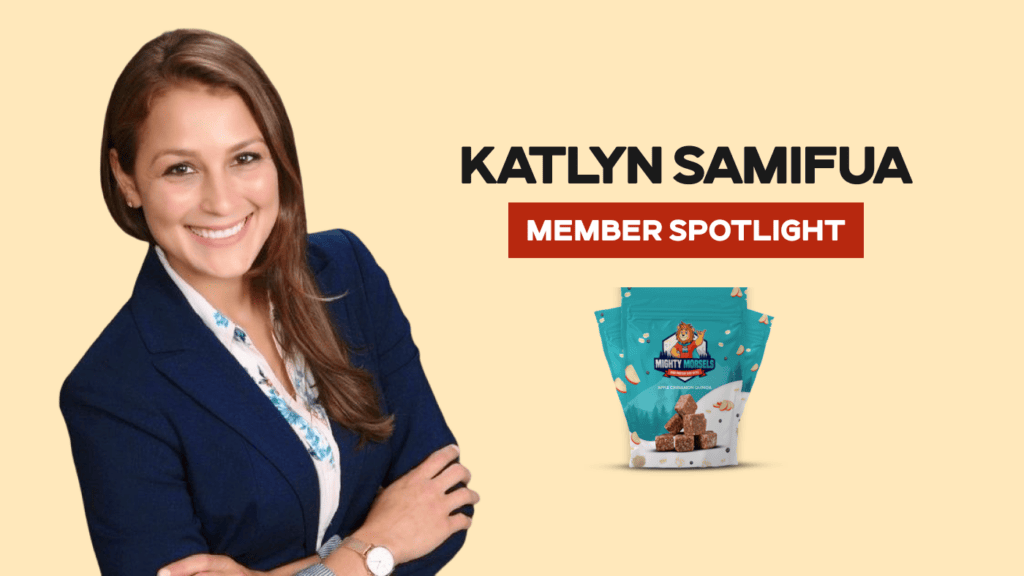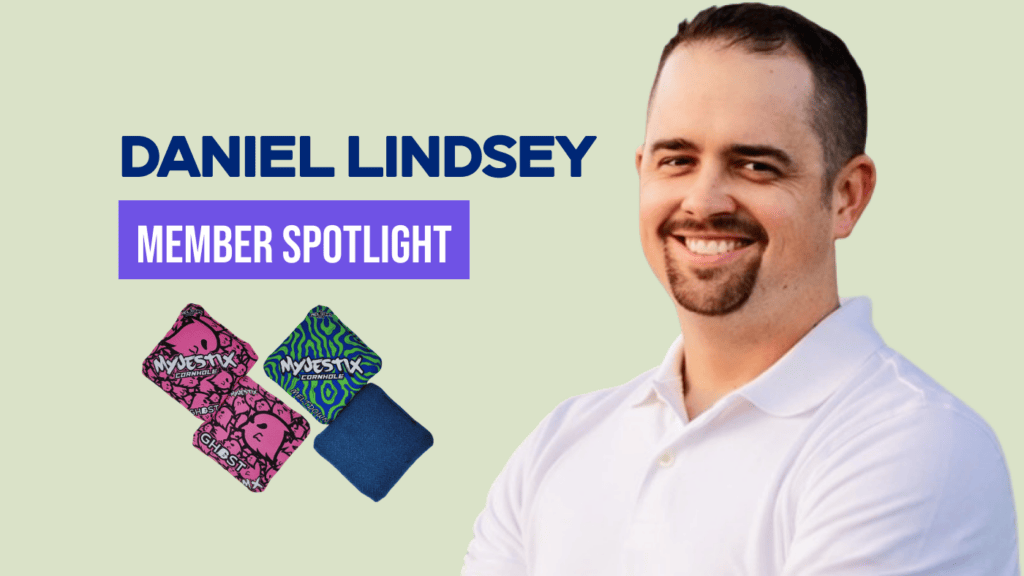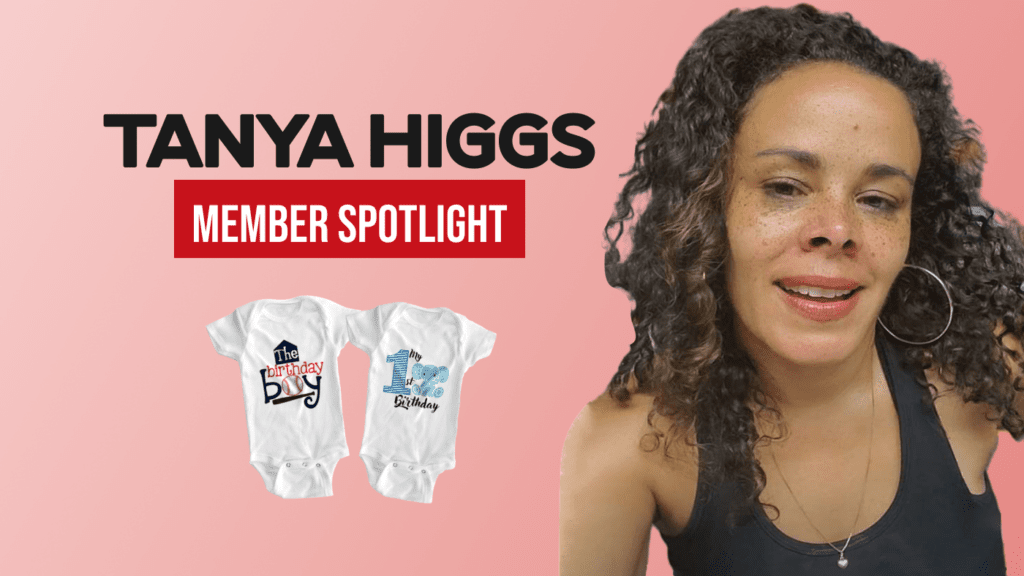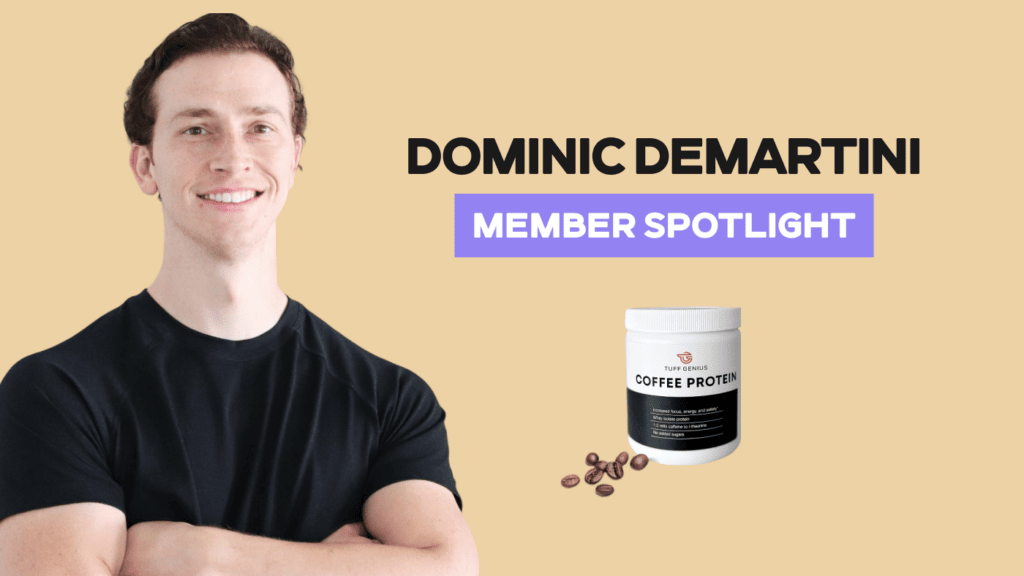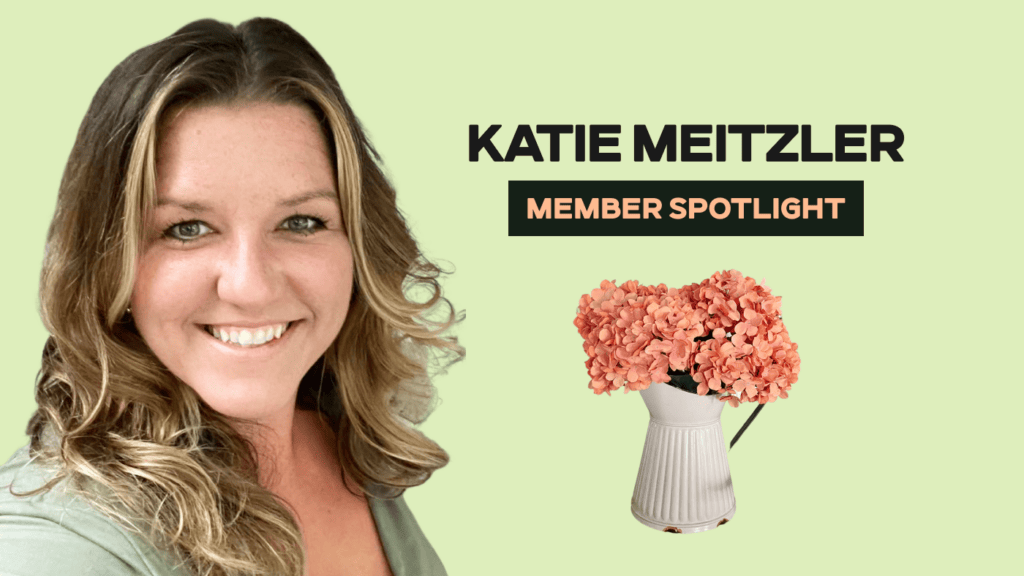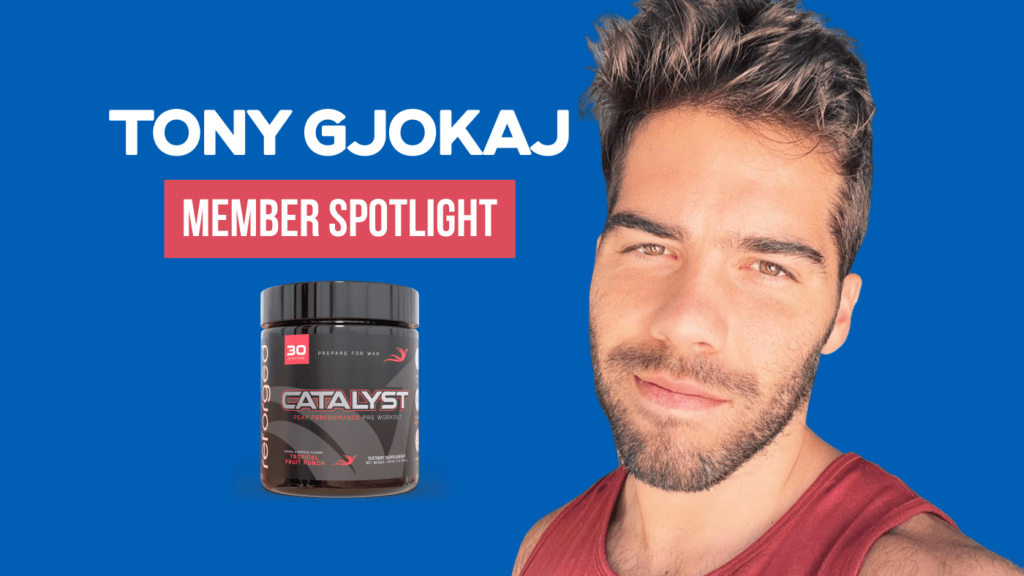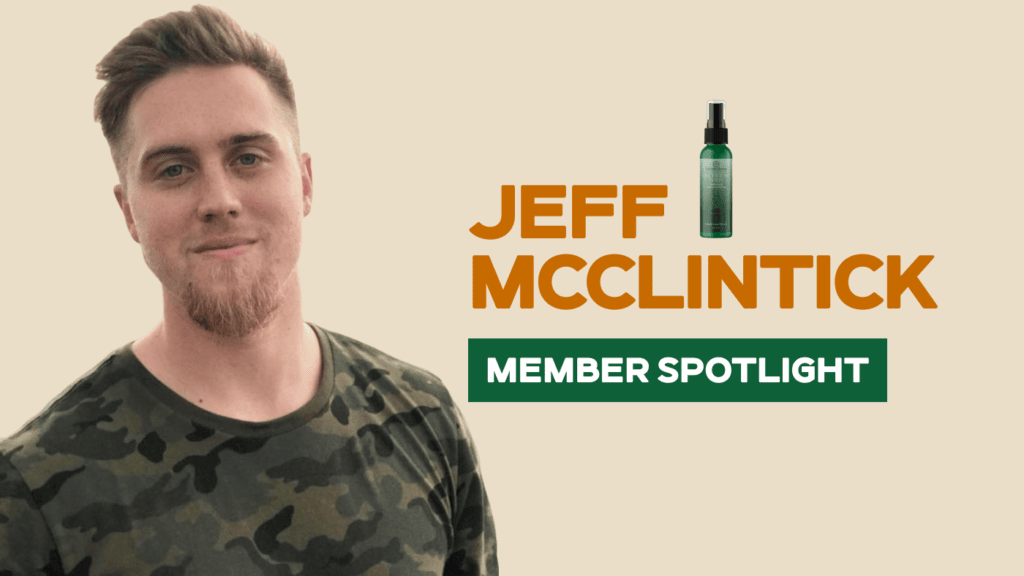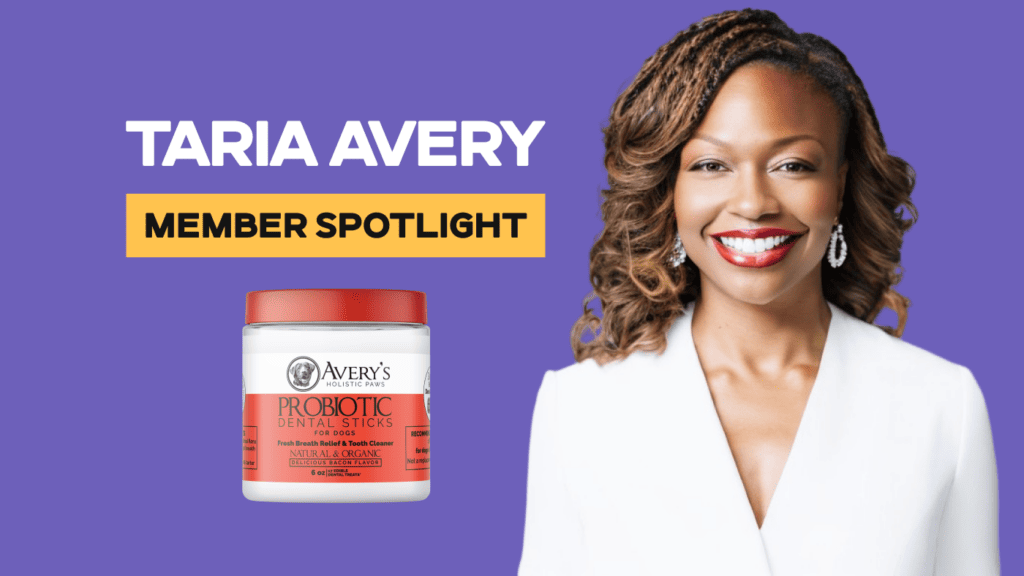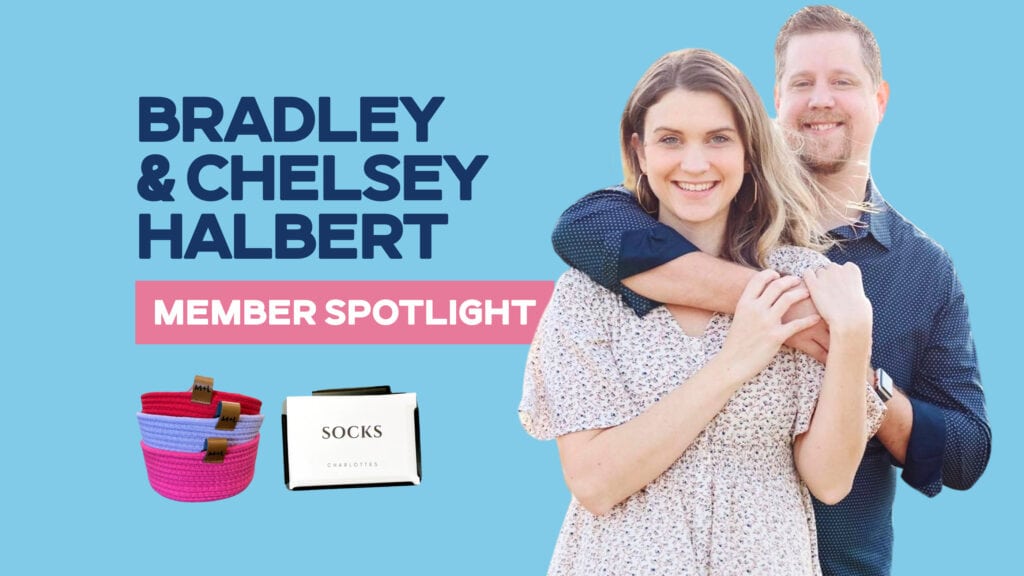How Does A Startup Sell Through 10,000 Units… At Full Price… With Zero Ad Spend?
Answer: build an audience, and give them what they want.
Zach Rocheleau and Stephen Doodian aren’t your typical “physical products seller” startup.
For years, Zach has published recipe books. His first book generated $110K in sales in just a couple of months. Normally, a launch like that is the result of a highly-strategic ad campaign. But Zach spent exactly zero dollars on advertising for his startup. Instead, his entire following has been built on Instagram. All along, he had shared his story - and the results he was getting for his clients. More importantly, he created a real presence there, interacting with his highly-engaged audience like it was his job. They loved him, loved what he was sharing, and loved his commitment to helping them get the results they wanted.

And Then, There Was Cookie Butter
Earning $100k selling cookbooks is fine and well, but something inspired Zach to do more. When Zach heard that RXBar sold to Kellogg’s for $600 million, he wanted a piece of that runaway startup action. That led him to pursue a brand that would make “cheat day” a “normal day.”
Anyone who has ever dieted knows about cheat days. Those are the days when you get to eat what you really want, rather than what you are supposed to want. Just anticipating an upcoming cheat day can help people stay on plan because they know the restriction is not forever.
The problem with cheat days is that it is frighteningly easy to undo the hard-won progress if the day gets out of hand. Zach’s community was asking for a solution. Why couldn’t someone come out with cheat day treats that were actually good for you? Treats that were low in calories and high in macronutrients? Treats that tasted good enough to satisfy those cravings?
He listened and got to work to give the people what they want. If you have ever had powdered peanut butter, you understand the concept behind his cookie butter. Before launching this startup, Zach simply posted recipes using his powdered cookie butter, and it created buzz with his audience, and among other influencers.
As Billy Mays famously stated: the best sales format is when you can DEMONSTRATE your product in use. That’s exactly what Zach and Stephen did - they simply shared recipes using this product, and the buzz for the new startup was built organically.
Spreading The Word, Sharing The Cookie Butter
Before his sales exploded in December 2018, Zach traveled around the U.S. with his product in little plastic baggies. The pale, powdery substance looked a little suspicious. TSA wasn’t amused. But their closer assessment revealed a harmless but delicious protein cookie butter powder—Zach’s special recipe.
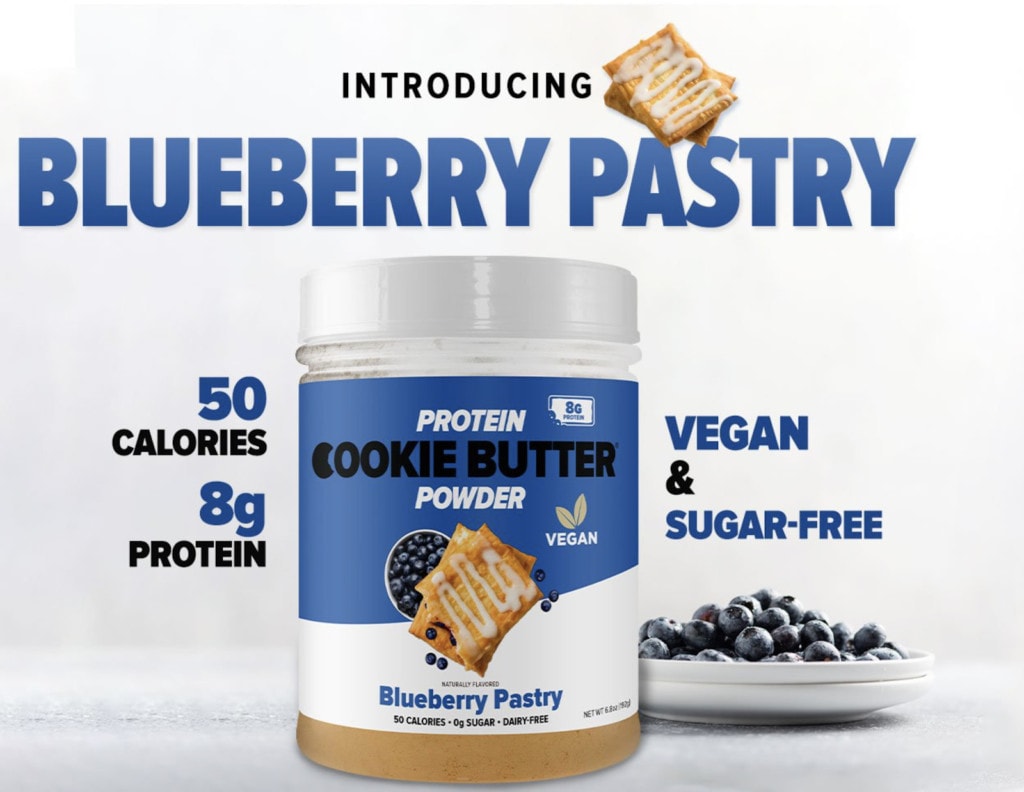
Thankfully, no jail time for Zach. Who’s got time to do time when you’re busy flying around cooking for influencers and creating buzz for your new product? This epic cookie butter tour began a sales explosion with zero ad spend.
The Startup That Broke The Internet
With zero experience in the physical products world, Zach and Stephen weren’t sure what to expect on launch day - and 10,000 units is a big order for your first product! But as soon as the doors were open, cookie butter flew off the shelves as 6,500 eager buyers crashed their site, some waiting up to two hours to buy.
To say this startup offered a less than optimized customer experience is an understatement. But their customers stuck with them to get this stuff. That is the power of having a highly-engaged audience. They forgave the missteps that could have derailed his launch and bought like the devoted tribe they are.
NOTE: Many online sellers are going for the sale instead of going for the relationship. The secret to Zach and Stephen’s startup success was the depth of their relationships with customers, so they were willing to forgive any missteps, while also eagerly lining up to buy and leave reviews!
The result? Zach and Stephen sold 9,500 units the week they launched, and they only launched to their own audience. Some buyers bought ten units at a time, then came back to buy more. About 30 minutes into this whirlwind, the guys put their second purchase order in.
Remember, ZERO Ad Spend Here
Yeah, but you don’t have 100,000 Instagram followers like Zach had.
You are (obviously) not alone. Most startup entrepreneurs start with an audience of crickets. However, at The Capitalism Conference, both Zach and Travis Sago shared how they leverage other people’s audiences to promote whatever products they desire.
Here are a few insights shared from stage:
Your audience will tell you what they want.
Zach built an audience, listened to them, and gave them what they craved. He had never created a physical product before; he just figured it out. The marketing consisted of nothing more than saying, “Hey, we created this. Swipe up and check it out.” If you do nothing else for marketing for your startup, build an audience and listen to them!

Build a tribe that listens when you say something.
So many startup business owners hide behind the scenes. Their audience has no emotional connection with them, so they buy based on price rather than from love and loyalty. By building a tribe means you won’t have to play the price game. This cookie butter is the first on the market, but for a reference point, powdered peanut butter runs about $5 per jar. Zach’s cookie butter has half the number of servings and sells for about $20 per jar.
Be a startup that solves a problem, then tell that story.
Take your audience on a journey as you solve that problem – even if it starts out as a problem that you’re solving for yourself. Tell that story. As people comment on what you share, interact with them. Never let a comment go unanswered. If someone takes the time to engage with your startup and you neglect to reply, why would they ever comment again?
STARTUP PRO TIP: Treat your commenters like royalty.
Instagram loves interaction. Its algorithm rewards your responsiveness by making your posts show up more often for your audience.
BONUS TIP: Other people’s audiences are unused assets.
As a compliment to Zach’s partnerships with other influencers, Capitalism.com mentor Travis Sago suggests using other people’s social media followings, email lists, and physical addresses to promote high-margin products. If you have not heard Travis’s episode on The One Percent podcast, it is worth a listen. It’s called “Million Dollar Offers: How Idiots Get Rich.”
“But I'm Busy”
Entrepreneurs have full plates. The thought of spending four or five hours a day DMing people and answering messages may sound overwhelming. Zach and Stephen did it for two years straight. In their opinion, there's no more valuable way to invest their time. They still do a lot of the messaging, but also have a handful of team members who help now, many of whom are customers who became fans, and then employees.
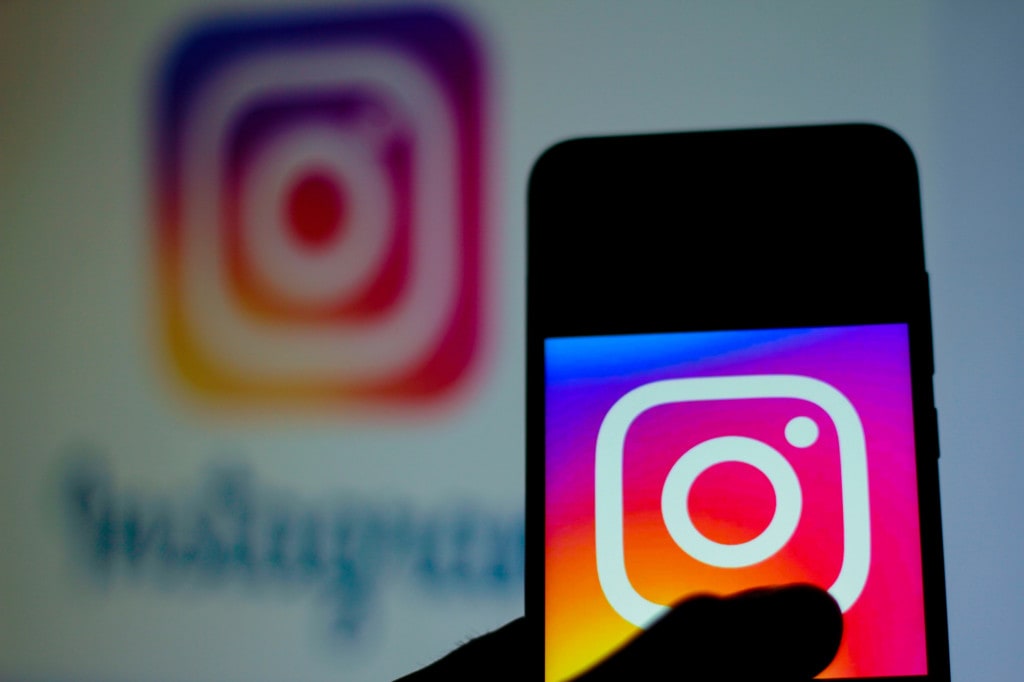
Don't rush into hiring team members who'll interact with your customers and partners. It's far more effective to hire people you enjoy working with and respect. Teach them how to do the task you have in mind than to hire to fill a position. Put "people" ahead of everything else; that's a simple rule that works in every situation.
Get yourself out there, focus on building real connections, and be sure your loyal tribe is in your corner, no matter how small. Keep their interests in mind as you move forward, and the rest will eventually fall right into place.
Startup FAQs
What does startup mean?
Investopedia offers a great definition:
A startup is a young company founded by one or more entrepreneurs to develop a unique product or service and bring it to market. By its nature, the typical startup tends to be a shoestring operation, with initial funding from the founders or their friends and families.
How do I start my own startup?
In a nutshell:
- Find a group of people you want to serve.
- Choose a problem that’s driving them crazy (or worse).
- Create a solution to that problem.
- If you offer a solution your people find more valuable than the cash in their wallets, you’ll make sales. That’s how you can become fabulously wealthy - by creating tremendous value for the people you serve.
What is a startup salary?
It’s important to understand the difference between making sales and taking a salary. You can turn a startup into a million-dollar brand in as little as a year. But the longer you can go without taking a salary, the bigger and faster you can grow. In Ryan Daniel Moran’s book 12 Months to $1 Million, he talks about three stages in a startup’s life: The Grind, The Growth, and The Gold. Many entrepreneurs in our community are reading and working through this book as a blueprint for their startups.

Is it startup or start up?
Technically, it’s start-up. But most people just drop the hyphen. Entrepreneurs are too busy to worry about a missing hyphen.
The Bottom Line
Even if you don’t have 100,000 Instagram followers, you can take away some helpful tips from Zach and Stephen’s experience:
- Connect with your followers—respond to their comments and regularly share to grow your influence and maximize the algorithm.
- Provide a solution—find out what your audience wants and then deliver.
- Hire a patent or trademark attorney before you launch a new product.
- Expect some bumps in the road and stay focused on the goal.
One of the biggest fears startup founders face is, “What if nobody buys what I’m selling?” That’s a pretty easy problem to solve from the beginning. Zach’s focus on the people he wanted to serve helped him identify a problem he could solve for them. He listened to them, built relationships with them, and then gave them what they wanted.
There’s no substitute for going all-in on your audience. That’s how your startup can attract a fan base that ultimately lines up to buy what you bring to market.
If you’re ready to build a startup business of your own, we’d love to help. That’s why we created this free video training series that’ll help you start on the right foot.


